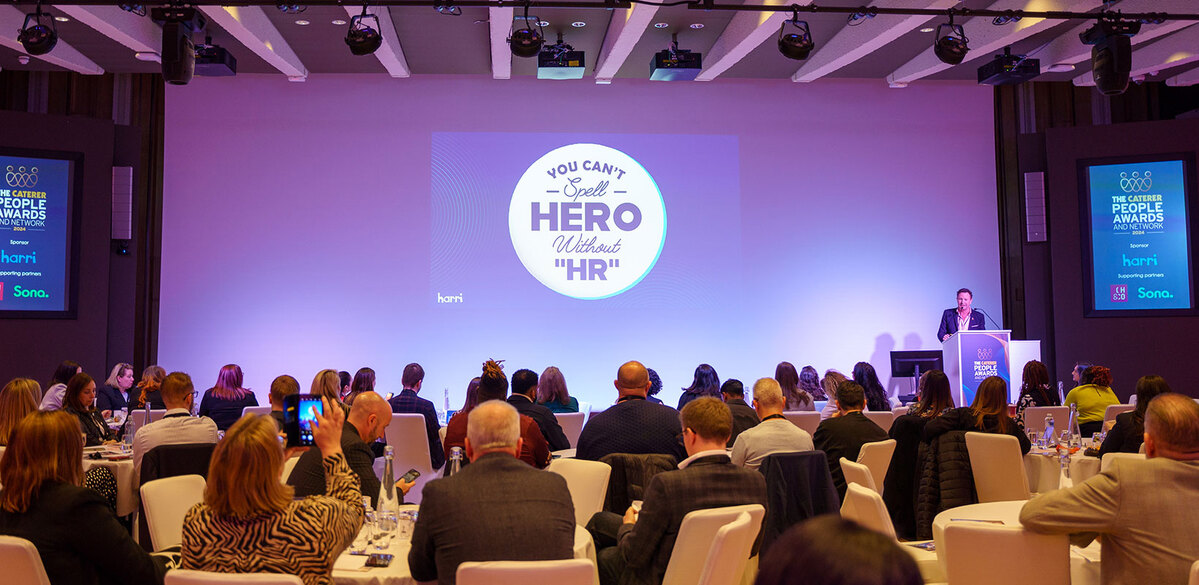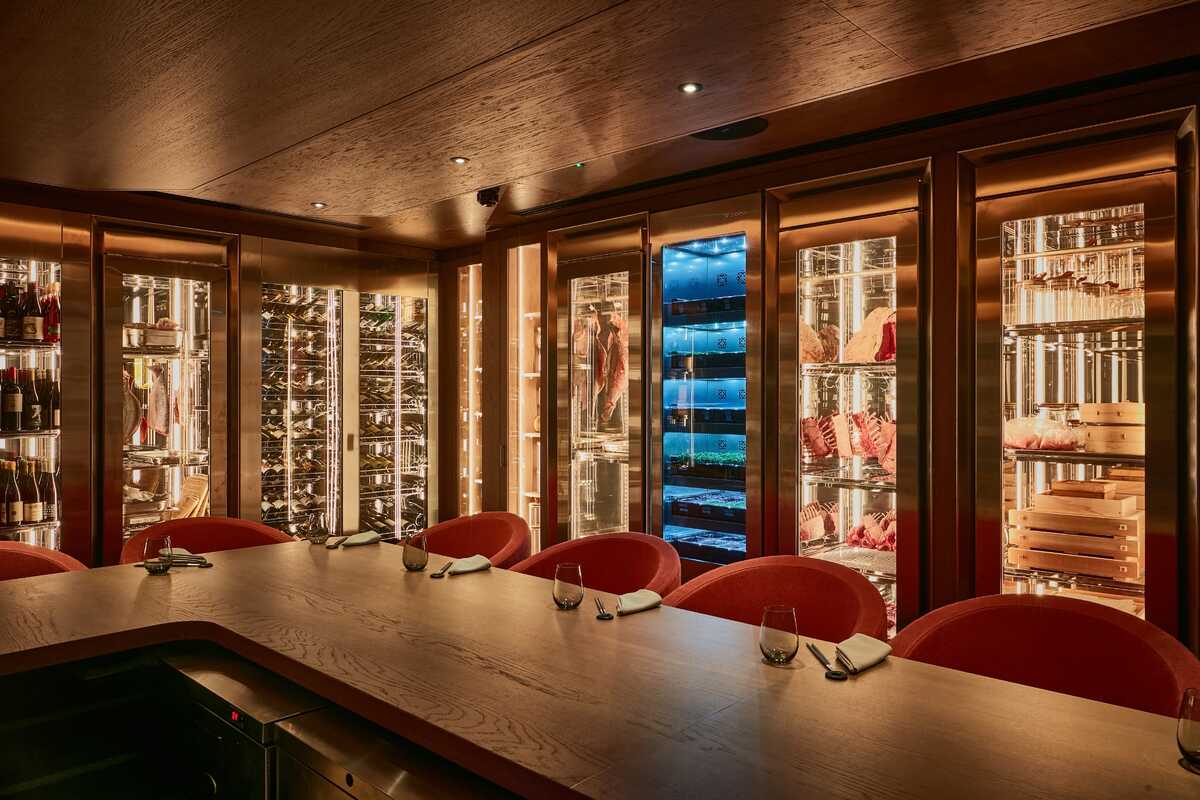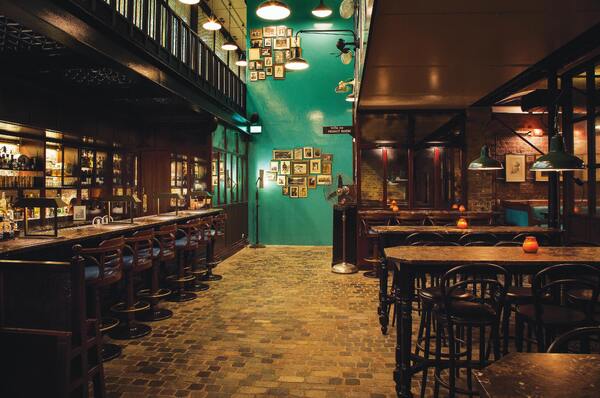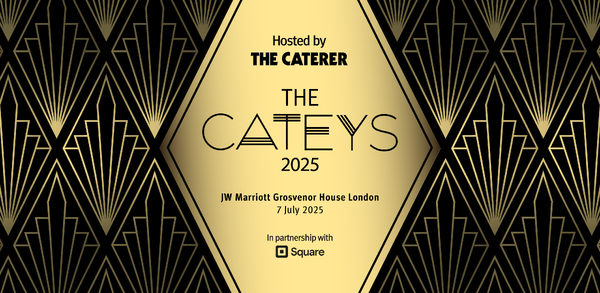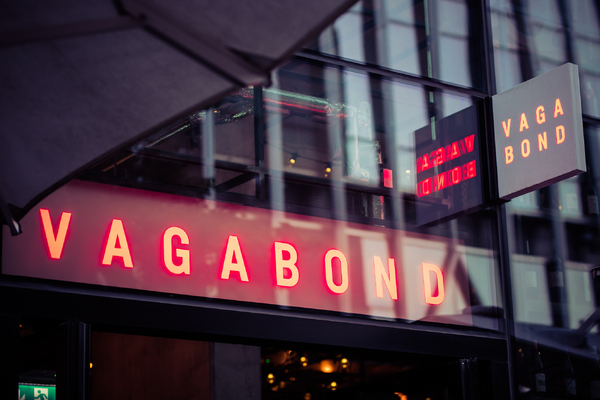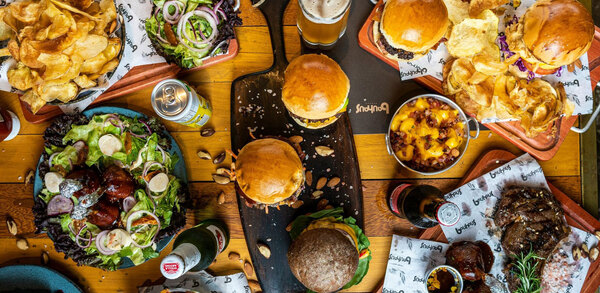9 things we learned from the People Awards and Network
From ways to save hundreds of thousands of pounds in recruitment costs to tips on achieving your potential, The Caterer’s inaugural People Awards and Network, sponsored by Harri and Sona, had a wealth of information for attendees.
Guests at the event, on 5 November at One Moortgate Place in London, hard inspirational stories, strategic learnings and insights before awards were presented to those leading the way in workplace culture.
Here are some of the key learnings from the event.
The speakers
- Trudi Parr, head of people and development, Mollie’s
- Kate Nicholls, chief executive, UKHospitality
- Chris Eigelaar, resort director, the Belfry Hotel & Resort
- Jodi Goldman, personal impact coach
- Emma Simpson, people and culture director, Gleneagles
- Pete Willis, commercial director, Harri
- Mark McCulloch, founder and chief executive, Supersonic Inc
- Robyn Filep and Eleni Kasparis, co-founders, Becoming
- Lorraine Copes, chief executive and founder, Be Inclusive Hospitality
1. There’s a workforce out there, you just need to create a compelling argument for people to come and work with you

Recruiting the 1,600 employees needed at Gleneagles hotel in the summer months can be challenging due to its remote location in the rolling countryside in Auchterarder, Perthshire. Emma Simpson, people and culture director at Gleneagles, explained that, to ensure it was an employer of choice, the hotel undertook a five-year people transformation in 2019. This ensured the expectation of its team were clearly set out, along with real progression opportunities, all underpinned by a culture of care.
Five years later the hotel receives 28,000 applications a year and has no vacancies in a team of 123 chefs. Staff turnover has reduced from 62% to 27% (and 10% amongst culinary teams) with an estimated £719,000 saved in recruitment costs.
2. The budget did hold silver linings, but they’re a long way off

Labour’s first budget was “incredibly painful” for hospitality, UKHospitality’s chief executive Kate Nicholls said. However, the leader of the hospitality trade body did highlight silver linings, while warning “they are a long way off”. She mentioned business rates reform, which is expected to bring a permanent lower multiplier for hospitality, as well as changes to the apprenticeship levy, which should unlock funding to pursue new training routes. Both are expected some time in 2025. Further into the future Nicholls expects the Employment Rights Bill to reduce the cost burden on businesses, but warned that this relief will not be delivered until 2026/27.
3. The Employment Rights Bill will not outlaw zero-hours contracts
Nicholls was also able to offer reassurance that zero-hour contracts would not be banned in the Employment Rights Bill. The Labour government had said it would look to outlaw what it described as “exploitative” zero-hours contracts, but Nicholls said it was recognised that such contracts could provide a flexible route to work and would not be banned outright.
4. The Hoteliers’ Charter will be expanded to include all sectors of hospitality
The Hoteliers’ Charter will be expanded to embrace all sectors of hospitality within the next 12 months. The charter, which sees businesses commit to a series of employee welfare principals, was conceived by 2019 Hotelier of the Year and general manager of the Royal Lancaster London, Sally Beck. The charter is now under the stewardship of UKHospitality and Nicholls said it would be refreshed and opened up to all hospitality operators.
5. Authentic stories are a powerful tool in challenging perceptions

Trudi Parr, head of people and development at motel brand Mollies, encouraged HR leaders to look within their businesses and share stories about the careers hospitality can offer. Parr said that by speaking positively and sharing real-life examples the industry can address challenging perceptions and ease recruitment.
Speaking later in the day, brand and marketing consultant Mark McCulloch, who spearheaded the Hospitality Rising recruitment campaign, spoke about how videos made by those working in the industry had helped attract 300,000 applications.
6. ‘We’re all winging it and doing the best we can’

Personal impact coach Jodi Goldman spoke to attendees about overcoming the doubts that stop them putting themselves forward and recognising their value. Goldman shared her advice for building confidence, celebrating success and inspiring others. She also reminded those gathered that everyone second-guesses themselves and added: “We’re all winging it and doing the best we can.”
7. Change is coming and employers need to be prepared

The Employment Rights Bill will bring forward 28 individual employment reforms, including day one rights for paternity, parental and bereavement leave, as well as making flexible working the default where practical.
Pete Willis, commercial director at Harri, explained that these changes would make workforce management crucial and suggested that employers look at cross-training to reduce the need for last-minute shift changes as well as securing a technology partner with experience in navigating such legislation.
8. If you want to reach under-30s, look to TikTok

Brand and marketing consultant Mark McCulloch spearheaded the industry’s Hospitality Rising campaign, which harnessed TikTok to reach 50% of all 16-30-year-olds, attracting some 300,000 job applications. The campaign used the voices of young workers to give an authentic perspective on working in the industry and while it ran the number of young people who said they would consider working in hospitality rose from one in five to one in three.
McCulloch told those thinking of using the platform for recruitment to find influencers that would appeal to their target market and give them creative licence, while outlining the points they need to cover. He reminded those gathered that while they may hate the videos created, they will appeal to the target market.
9. Look beneath the diversity statistics to really understand your business

Lorraine Copes, chief executive and founder of Be Inclusive Hospitality, encouraged those gathered to take another look at data to truly understand diversity, equity and inclusion within their business. Copes said that on the surface data would show that hospitality does not have a problem with diversity, but when Be Inclusive Hospitality spoke to individuals across all levels, 43% believed their ethnicity had acted as a barrier in their careers and one in three had experienced or witnessed discrimination.
Copes said: “Hospitality is a brilliant industry, however in acknowledging that we also have to confront that there are many areas that need to evolve forwards and equity is one, especially from a race perspective. Only if you really understand data can you do something about it. Then take action – nothing changes until something changes.”
From our sponsors
Harri
Harri was built by hospitality experts for the hospitality industry. We support businesses through the entire employee lifecycle, from hiring and scheduling to HR and payroll and employee engagement. Harri is committed to providing best in class technology and improving the hospitality sector, and that is why it was an honour to support the People Awards and celebrate all the hard-working hospitality employees and companies that were nominated and won.
Harri serves more than 55,000 restaurant and hotel locations and four million hospitality employees globally, including McDonald’s, Radisson Hotel Group, Hawksmoor, Hall & Woodhouse, Subway and more.
A big thanks to The Caterer for putting together such a great event.
To learn more, visit www.harri.com.
Sona
Exceptional individuals are at the heart of the hospitality sector and Sona is committed to supporting them to achieve their vision. As a next-generation workforce solution, we want to empower teams on every level of a large organisation to harness the power of AI-driven decision making and offer their colleagues a consumer-grade platform that helps them achieve their revenue goals while supporting their wellbeing.
With thanks to our headline sponsor Harri, supporting partners Sona and CH&Co, and associate sponsor Be Inclusive Hospitality.
If you think your business already has a brilliant people culture, why not enter The Caterer’s Best Places to Work in Hospitality? You could be named one of the top 30 companies in the sector and have the chance to enter the 2025 Best Employer Catey Award.



